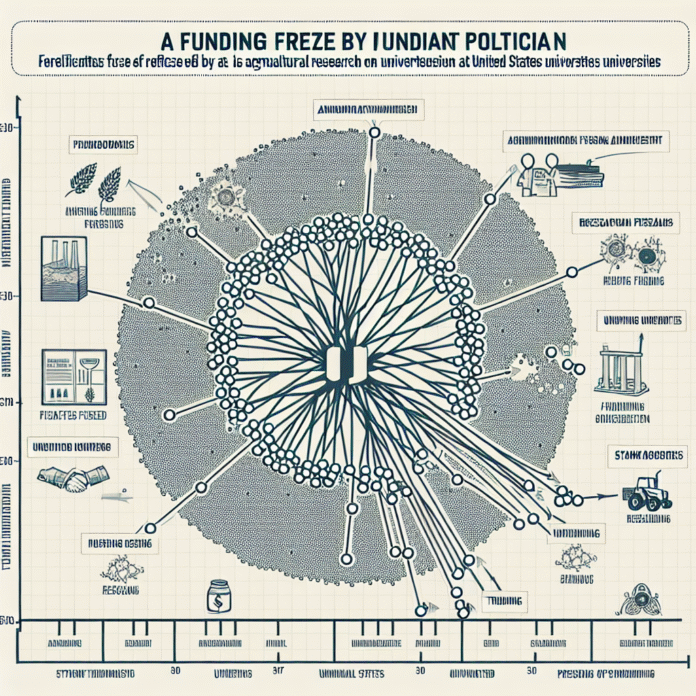Trump Funding Freeze Disrupts Agricultural Research at US Universities
Trump’s Funding Freeze Disrupts Agricultural Research at U.S. Universities
In a significant shift, the freeze on federal funding initiated during the Trump administration has had far-reaching consequences for agricultural research across U.S. universities. This funding halt has disrupted numerous critical projects aimed at enhancing crop yields, improving pest resistance, and advancing sustainable farming practices.
The U.S. agricultural sector heavily relies on federal funding to support research initiatives that address pressing issues such as food security, climate change, and innovative farming technologies. With the recent freeze, many ongoing research projects have faced delays or cancellations, jeopardizing the advancement of essential agricultural science.
Universities that previously thrived on grants from agencies like the U.S. Department of Agriculture (USDA) and the National Institute of Food and Agriculture (NIFA) are now grappling with budget cuts that threaten their research capabilities. As a result, researchers are forced to seek alternative funding sources, often leading to increased competition for limited private and state resources.
Moreover, the impact is not solely confined to academic circles; the ripple effects extend to farmers and consumers. Innovations that could lead to more resilient crop varieties and sustainable farming practices are being stalled, ultimately affecting food supply chains and agricultural productivity.
The freeze has also raised concerns among scientists about the long-term implications for the U.S.’s position in global agricultural research. As other countries continue to invest heavily in agricultural innovation, the U.S. risks falling behind in critical areas such as biotechnology and climate-adaptive farming techniques.
To mitigate the adverse effects of the funding freeze, many universities are advocating for increased collaboration with the private sector, fostering partnerships that could help bridge funding gaps. Additionally, stakeholders are calling for renewed federal investment in agricultural research to ensure that the U.S. remains a leader in addressing the challenges facing the agricultural sector.
In summary, the funding freeze initiated during the Trump administration has significantly disrupted agricultural research at U.S. universities, posing challenges for researchers, farmers, and consumers alike. The need for robust funding and innovative partnerships has never been more crucial to safeguard the future of agriculture in the United States.


